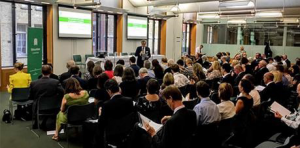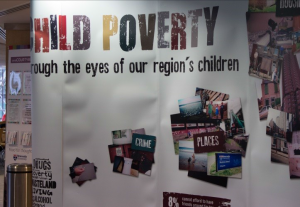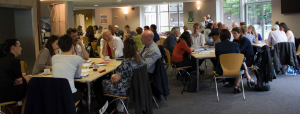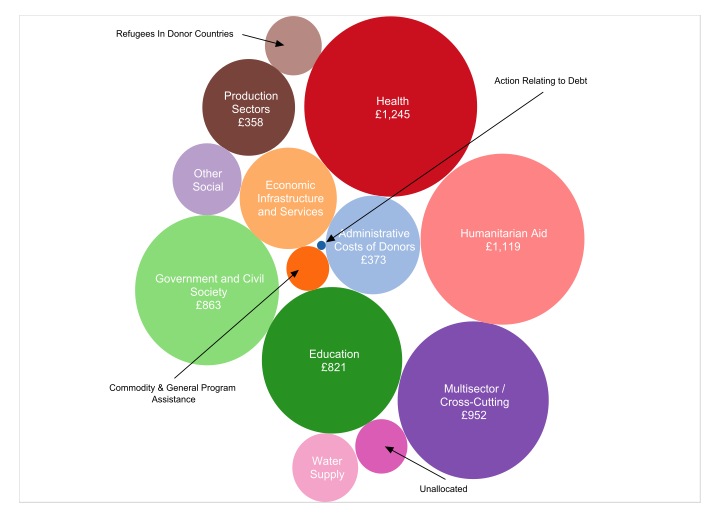Headlines:
- We are pleased to announce that Jill Clark will be taking over as CfLaT Executive Director from the New Year. Out-going Exec Director, David Leat says, ‘Thanks to everyone who has made my (long) tenure enjoyable’.
- CfLaT’s directors have this year scored a promotions hat trick, with Rachel Lofthouse and Pam Woolner promoted to Senior Lecturers and Jill Clark to Principal Research Associate.
- Laura Mazzoli Smith has been appointed as a Research Excellence Academy Fellow — the first to be appointed in this new University research initiative. Laura has also been invited to be a member of the Scientific Committee for the European Society for Research on the Education of Adults (ESREA) 2017 Life History and Biographic Methods conference.
- Simon Gibbs has had a paper discussing the costs and benefits of educational psychology accepted for ‘Educational Psychology in Practice’. Working with CfLaT’s favourite economist, Ivy Papps, Simon investigated the cost and perceived benefits of the educational psychology services in two comparably small local authorities in England.
- Laura Mazzoli Smith and Karen Laing have been awarded funding for a project ‘Changing Stories’ that aims to harness the power of life story to support the transition of pupils from backgrounds with historically low participation rates in higher education to get to university. The projects involve a colleague at Bristol University, Dr Sue Timmis, and will also involve collaboration with widening participation staff in the North East Raising Aspiration Partnership.
Community Curriculum Making
Ulrike Thomas and David Leat have run a 9 month project funded by the Economic and Social Research Council Impact Acceleration Fund on Community Curriculum Making.
Ideally this sees schools working with community partners to plan and run meaningful, challenging projects for pupils. While this might sound like familiar territory for some schools, the hallmark is the extent to which the community partners are involved, both in planning and in providing a wide array of resources and experiences from community assets. Our slogan is that pupils need ‘to go places, meet people and do and make valuable things’.
Educational progression becomes more than meeting subject targets and as much about developing social capital, informed aspirations and complex identities. This is hard to achieve sat in a classroom just doing work for your teacher. To extend a famous aphorism ‘it takes a city to raise a child’.
The project culminated in an event in July attended by 70 people. This included a group of students from Belmont School in County Durham (thank you Laura Jackson) who had been taught by community members over the course of a week to play brass instruments, with a public performance at the end of the week. They were going places, meeting people and doing a very valuable thing. There were various other table seminars hosted by schools and community partners. The principle outcomes of the project is a Guide to Community Curriculum Making and an agenda for further action and research. Please contact David or Ulrike if you would like a copy.
In addition David has just completed a book Enquiry and Project Based Learning: Students, School and Society to be published soon by Routledge.
For information, contact David.Leat@ncl.ac.uk or U.Thomas@ncl.ac.uk
CfLaT Showcase: Educational Research for Practice
Rapidly becoming an annual event, the CfLaT research showcase offers teachers, students, school leaders, educational practitioners, academics and policy makers a chance to find out about recent research activities and outcomes. And it’s free to attend!
Presented by members of CfLaT, the showcase will include research presentations and Moot ‘How can we ensure all children achieve?’. As ever, there will be plenty of opportunities for networking. Wednesday, 5th October 4pm-7.30pm, King George VI Building, Newcastle University See programme here.
Register here.
CfLaT welcomes Sam Shields
Sam Shields is a newly appointed lecturer in ECLS who will be teaching research methods to our undergrad, masters and doctoral students.
Sam’s research interests include assessment and feedback, research methodologies for pedagogic research and emotions and power in the learning process. She presented a paper at BERA about pedagogic research methodologies in the Netherlands and the UK. She is in the early stages of collaborating with colleagues in the HungarianNetherlands School of Educational Management on a project called the ‘Learning School: International Comparative Research’. She is looking forward to collaborating with colleagues in CfLAT and is always happy to chat about research.
Contact samantha.Shields@ncl.ac.uk
House of Commons Education Committee
In January this year CfLaT col-leagues submitted evidence to the Education Committee as part of their inquiry into the ‘Purpose of Education’. A condensed ver-sion of our submission was later posted on the BERA Blog (https://www.bera.ac.uk/blog/some-thoughts-on-the-purpose-of-education). Following that, in July Simon Gibbs received an in-vitation to attend a conference convened by the committee as part of their ongoing inquiry into the ‘Quality and Purpose of Edu-cation in England’. Here Simon reflects on the experience .
The day consisted of a mix of invited speeches (including Gert Biesta, Daisy Christodoulou, Dame Alison Peacock, Michael Young, Mary Beard) and a range of ‘breakout sessions’ in which we were invited to discuss specific topics – choosing two from ten. I opt-ed to join one led by Anna Vignoles that was devoted to ‘Social mobility in education’; and the other, led by Ste-phen Drew, headteacher of Brent-wood County High School that was focussed on ‘Behaviour and discipline’. Other groups considered ‘Employability’, ‘Parental engage-ment’, ‘’Primary assessment’, ‘Standards’, ’14-19 assessment’, ‘Educating outdoors’, ‘Expressive arts and creativity’ and ‘well-being and mindfulness’.
During the course of the day we also heard from representatives of Swiss and Finnish governments who gave us rather different perspectives on how education might be envisioned and operationalised.
During one of the breaks I was able to talk with Neil Carmichael, who chairs the Education Committee and noted the breadth and diversity of topics under consideration and won-dered about how it might be possible to arrive at any meaningful conclu-sions. He admitted that the ‘strategy’ was deliberate and part of an open-ended inquiry and that the committee was determined to pursue the issue.
Mary Beard, who perhaps might at first seem an unlikely key-note speak-er at such a conference, reminded us that education has been a ‘political football’, since at least 399BC (see the copy of her speech here) She admit-ted that for her ‘education in the broadest sense is one of the most elusive subjects in the human scienc-es’ and concluded by suggesting that we might ‘abolish a few paper trails and initiatives, trust the judgement of teachers on the ground more – and in general ‘loosen up’’.
For me that sounds like good common sense but not, I fear, a prescription that may sit comfortably with Neil Carmichael and his committee col-leagues. I sensed a genuine intellec-tual fascination with the issue (what is the purpose of education?) but the committee may be unable to locate best fulcrum for the lever of change.
In the context of Brexit, grammar schools and the balance of power at home and internationally who is going to really give a fig for education? Alt-hough the Finns are overhauling their education policies, even they fear the incursions of realpolitik and the cold heart of international economics. For the foreseeable future I suspect the voice of folk like Daisy Christodoulou (‘‘Girl number twenty unable to define a horse!’ said Mr Gradgrind’) will be more likely attended to than the wis-dom of Gert Biesta. Sad times and Hard Times (again).
Poverty Proof Schooling
Laura Mazzoli Smith and Liz Todd have been engaged in an evalua-tion of a high-impact Children North East audit called ‘Poverty Proofing the School Day.’
Their evaluation produced a report, which has been widely circulated and taken up, and was part of a BERA presentation on community-led school reform in September.
The evaluation and work around the concept of poverty-proofing formed part of an event hosted by CfLaT on July 12th, ‘The Impact of Poverty on Education – New Evidence on an Old Problem’ with invited speakers Profes-sor Ruth Lupton from Manchester Uni-versity, Sara Bryson from Children North East and Irene Cussó Parcerisas from Ramon Llull University, Barcelo-na.
Laura has also recorded a short Youtube video for teachers and teach-ers-in-training on the key principles of the poverty-proofing process, available here
For more information, contact: laura.mazzolismith@ncl.ac.uk
Research Tea Timetable
Our Wednesday Research teas aim to provide an informal forum for discursive exami-nation of emerging research themes and concepts.
Tea and cakes will be available from 3.45pm in the Centre base (KGVI 2.50), unless other wise stated, with the session officially beginning at 4pm.
21st September: Angelika Strohmayer, Open Lab – Researching With Charities in Socially Complex Spaces
19th October: Alan Strachan, Director of Extended Services (Wallsend Area) – Wallsend Children’s Community: A model of partnership working.
16th November: Liz Todd, Laura Mazzoli Smith and Karen Laing, CfLaT – Out of School Activities and the Attainment Gap
Further information about the research teas from laura.mazzolismith@newcastle.ac.uk
or from the Centre website (http://www.ncl.ac.uk/cflat/news/Teas.htm).
Hello Kim!
CfLaT is delighted that Kim Cowie has been appointed as a Lecturer in Education specialising in Profession-al Learning.
Kim previously taught in a number of lo-cal schools, most recently being Deputy Head at Park View in Chester-le– Street. While there she was an enthusiastic col-laborator in the Community Curriculum network initiated by David Leat and Ulrike Thomas.
Contact Kim: kim.cowie@ncl.ac.uk
CfLaT at ECER & BERA
CfLaT was present in strength at both the European and British education research conferences, ECER and BE-RA.
We took papers on CfLaT projects, but also used the opportunity to present with academics from other universities, across the UK and Europe who are partners in our research. See page 4 for details of our papers and please do contact col-leagues for further information.
This Year’s Conference Papers: Oct 2015 – Sept 2016
Baumfield, V., Hall, E., Lofthouse, R. & Wall, K. (2016) What do we mean when we talk about practice? Working in partnership to understand teachers’ labour, work and action in the classroom, ECER, Dublin, 23-26 Aug 2016.
Clark, J. and Laing, K. (2016) Making connections: Theory and practice of using visual methods to aid participation in research, Youth Matters: Moving from the margins, Newcastle University, 8-9 June 2016.
Clark, J. and Laing, K. (2016) Working with young people around crime and anti-social behaviour: exploring the capacity for change in their communities, North East Crime Research Network Conference, Northumbria University, 7 April 2016.
Koglbauer, R. (2016) Invited Keynote on Professional Development Programmes for School Leaders, Leadership Conference, Hebei (China), May 2016.
Koglbauer, R. (2016) Languages, Language Learning in the UK – The Now and The Future A reflection by the President of the Association for Language Learning. Keynote, Languages in HE conference, University of Warwick, UK, July 2016.
Laing, K. and Clark, J. (2016) Capacity building in research skills and methods: In-volving young people as agents of change, BERA, Leeds, 13– 15 Sept 2016.
Laing, K. Mazzoli Smith, L. and Todd, L. (2016) Out of school activities and the edu-cation gap, ECER, Dublin, 23-26 Aug 2016
Laing, K. Mazzoli Smith, L. and Todd, L. (2016) Out of school hours activities: looking at school staff, parent and pupil meanings and theories, BERA, Leeds, 13-15 Sept 2016
Laing, K. (2016) Understanding the relationship between out of school activities and attainment, BERA, Leeds, 13-15 Sept2016.
Laing, K. & Lofthouse, R. (2016) The role of models as tools in the ecology of re-search and practice partnerships, ECER, Dublin, 23-26 Aug 2016.
Leat, D. and Thomas, U. (2016) Curriculum Brokerage Between Schools and Commu-nities, ECER, Dublin, 23-26 Aug 2016.
Lofthouse, R. (2015) Carving out a CPD role for university expertise; sustaining impact and relationships, University Council for the Education of Teachers Annual Conference, Birmingham, 3 – 4 November 2015
Lofthouse R., Davies, P., Davies, D., Greenway, C. & Kirkman, J. (2016) Trainee teachers’ conceptions of their own learning: does context make a difference? BERA, Leeds, 13– 15 Sept 2016.
Lofthouse, R. (2016) Lesson study as part of ITTE: learning promise or clumsy com-promise? Teacher Education Advancement Network Conference, Aston University, May 5th- 6th 2016.
Lofthouse, R. (2016) A chance to learn through inter-professional practice develop-ment; coaching teachers to develop communication-rich pedagogies in multi-cultural settings, Teacher Education Policy in Europe Network Conference, Univer-sity of Malta, May 19th – 21st 2016.
Lofthouse, R. (2016) How can we help them? Coaching and Mentoring in Initial Teacher Professional Development, ITE Mentoring Conference, University of Roe-hampton, 5th July 2016.
Mazzoli Smith, L. (2016) Working with gatekeepers: young people, power relations and permission to speak, Youth Matters: Moving from the margins, Newcastle University, 8-9th June 2016.
Mazzoli Smith, L (2016) Initiatives designed to support pupils in areas of socio-economic disadvantage – a contradiction in terms? BERA, Leeds, 13– 15 Sept 2016.
Reid, A. (2016) Leadership workshop, North East Teaching Schools Conference, Newcastle upon Tyne, 27 June 2016.
Reid, A. (2016) Leadership development in the North-East of England, Headteacher Leadership and Professional Development Conference, Baoding (China), 8 May 2016.
Reid, A. (2016) Leadership, identity and agency: methods to explore dialogical selves, BELMAS/BERA Educational Leadership SIG event, Newcastle, 26 Apr 2016.
Reid, A. and Koglbauer, R. (2016) How can Bernstein’s (1996) concepts of ‘classification’ and ‘framing’ be used to explore the development of programmes for school leaders in the North East of England?, BELMAS, Carden Park, 8-10 July 2016.
Reid, A., Lofthouse, R. and Leat, D. (2016) Our dialogical selves: developing an analytical framework for exploring practitioner identity and agency, BERA, Leeds, 13– 15 Sept 2016.
Robson, S. (2016) Keynote, Researching Educational Leadership: conceptual and methodological challenges. BERA/BELMAS seminar. Newcastle, 26 Apr 2016.
Robson, S. (2016) Becoming international: academic perceptions and practices of internationalising higher education. ECER, Dublin, 23-26 Aug 2016.
Robson, S. (2016) Keynote, East Asian Research Group Anniversary Seminar: Bene-fits and Challenges of Internationalisation in a competitive global environment. Hull, Mar 2016
Robson, S. and Koglbauer, R. (2016) Invited Plenary, Leading Creative and Produc-tive Teams School Business Manager Conference (Schools North East, UK), July 2016.
Shields, S. (2016) Researching Assessment: An analysis of the methodological tradi-tions in the UK and Netherlands, BERA, Leeds, 13– 15 Sept 2016.
Woolner, P. and Thomas, U. (2016) A school for the future: design, democracy and student expectations in England 2016. ECER, Dublin, 23-26 Aug 2016.
Woolner, P. and Thomas, U. (2016) Flexibility in the HE learning environment: defini-tions, desires and the potential of new designs of furniture to enhance it. ECER, Dublin, 23-26 Aug 2016.
Woolner, P. and Thomas, U. (2016) Change and stasis within design and practice over three decades in an English primary school. ECER, Dublin, 23-26 Aug 2016.
Wysocki, L. (2016) Setting boundaries, communicating, and reflecting: 3 projects using comics as a method, Graphic
For more information, please see our website: www.ncl.ac.uk/cflat








